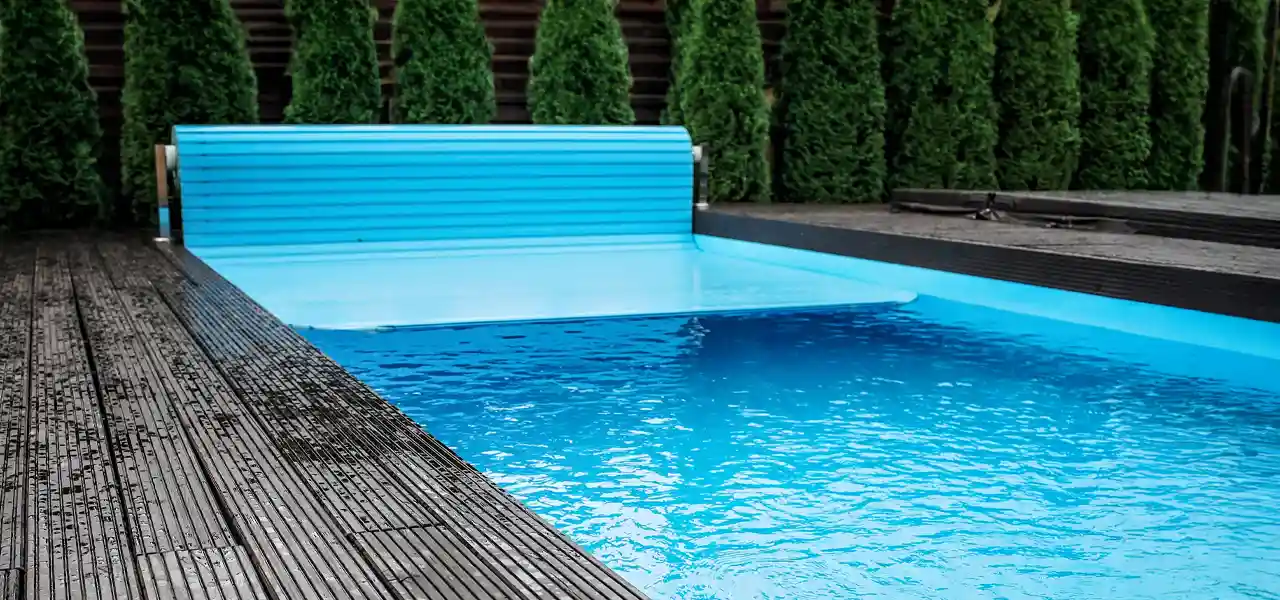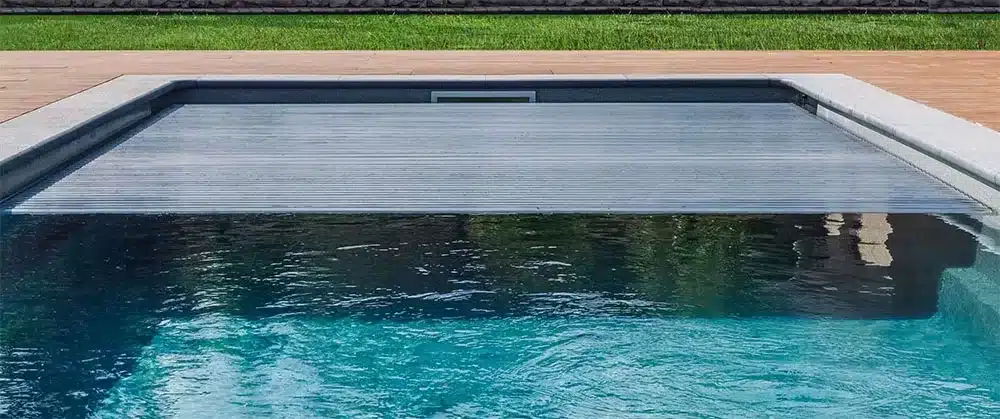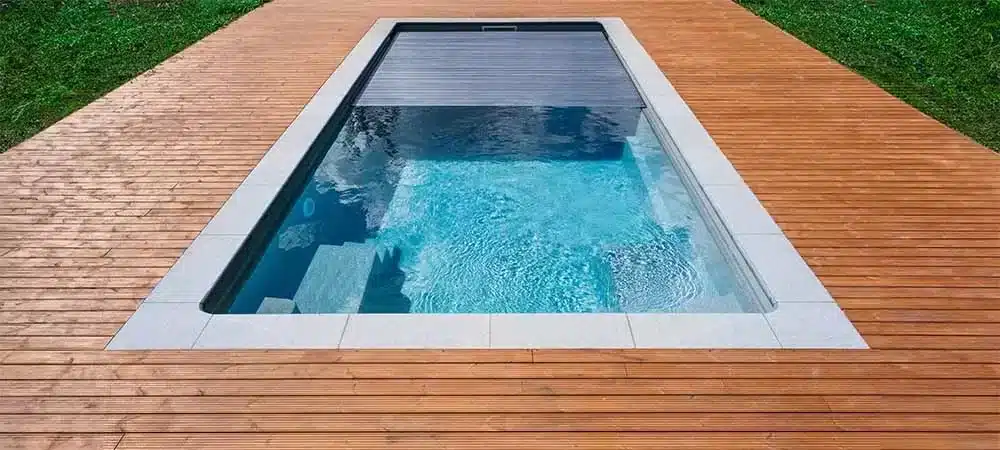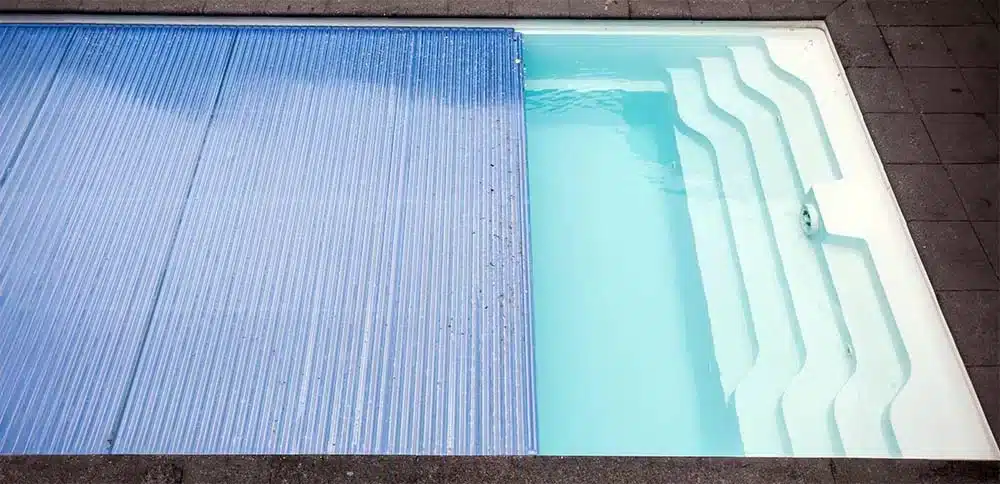FREE Standard Shipping On All Orders $100 or More!*

Automatic Pool Covers: Are They Worth It?
Are you considering investing in an automatic pool cover for your pool? Automatic pool covers offer convenience, energy efficiency, safety, and maintenance benefits. In this article, we will explore whether an automatic pool cover is worth the investment, and why it might be the right choice for you.
Pros
Like any type of pool equipment, automatic pool covers come with their own set of pros and cons. Depending on what your budget, goals, and preferences are, the pros might outweigh the cons. So, let's discuss what makes automatic pool covers so great.

The Convenience Factor
One of the primary advantages of an automatic pool cover is the convenience it provides. With just a push of a button, the cover can be effortlessly opened or closed, saving you time and effort. In today's fast-paced world, where time is a valuable resource, the convenience offered by an automatic pool cover cannot be overstated. It eliminates the need for manual labor and reduces the time required for pool maintenance tasks, such as cleaning leaves and debris from the water.
Energy Efficiency
Another significant benefit of an automatic pool cover is its energy-saving capabilities. These covers act as insulators, preventing heat loss from the pool when it is not in use. This means that the pool heater doesn't have to work as hard to maintain the desired temperature, resulting in energy savings and lower utility bills. In addition, the cover reduces water evaporation, which can also lead to significant energy and water savings over time.
Safety and Security
Safety is a paramount concern for pool owners, especially those with young children or pets. Automatic covers provide an additional layer of security by acting as a physical barrier over the water surface when the pool is not in use. This helps prevent accidental drowning incidents and gives homeowners peace of mind, particularly when they are away from home. Moreover, high-quality automatic safety pool covers can support the weight of a person, offering an extra level of protection against unauthorized access.
Preservation and Maintenance
An automatic cover helps preserve the overall quality and longevity of your pool. By shielding the water from sunlight, debris, and harsh weather conditions, it helps your sanitizer work more efficiently and limits how often you need to clean the pool. It also prevents the accumulation of dirt and algae, which can be both unsightly and detrimental to the pool's structural integrity. Therefore, an automatic cover can save you money in the long run by minimizing costly repairs and maintenance.
Financial Considerations
Now let's address the cost aspect. It's true that automatic pool covers can be a significant investment. The price depends on various factors, including the size of your pool, the type of cover, and any additional features you may choose. However, it's essential to consider the long-term financial benefits. Energy savings, reduced water consumption, and lower chemical and maintenance costs can offset the initial investment over time.
Cons
While there are plenty of benefits to automatic pool covers, there are some cons that could potentially alter your decision. The main disadvantages of automatic covers are cost, installation, maintenance, and design limitations. Keep reading to learn more.

Initial Cost
One of the main drawbacks of automatic covers is the upfront cost. These covers are generally more expensive than manual alternatives or other types of pool covers, costing anywhere from $10,000-$20,000. However, it's essential to consider the long-term benefits and potential savings to determine if the initial investment is justified.
Installation Complexity
Installing automatic covers can be a complex process that requires professional expertise. The complexity of the installation may lead to additional costs, and improper installation can result in malfunctions or reduced effectiveness.
One factor that can cause a big increase to the cost and installation time is track location. In-pool tracks, ones tucked away inside the inner walls of your pool, require a significant amount of construction and work. However, while pricey, this option creates a seamless and aesthetically beautiful system. Deck tracks, on the other hand, sit on top of the pool deck and are much easier, and cheaper, to install. But, one major drawback of these tracks is that they pose a large tripping and injury hazard.
Maintenance and Repairs
Like any mechanical system, automatic covers require regular maintenance to ensure proper functioning. Additionally, if any components malfunction or break, repairs can be expensive. Homeowners should factor in ongoing maintenance costs when considering the overall investment.
Limited Aesthetic Options
While automatic pool covers are available in various materials and colors, the design options might be limited compared to other types of pool covers. This limitation may impact the overall aesthetics of the pool area.
Choosing the Right Automatic Pool Cover

When considering an automatic pool cover, it's crucial to choose the right one for your specific needs. Here are a few factors to consider:
- Type of Cover: There are various types of automatic covers available, including hydraulic covers, electric covers, and solar covers. Each type has its pros and cons, so it's essential to research and understand which one suits your needs and budget.
- Safety Features: Look for automatic pool covers with safety features, such as key locks or touchpad controls, to prevent unauthorized access.
- Durability: Invest in a high-quality automatic pool cover that is durable and designed to withstand harsh weather conditions.
- Warranty: Check the warranty provided by the manufacturer to ensure you’re protected in case of any defects or issues with the cover.
In conclusion, an automatic pool cover is worth the investment due to its convenience, energy efficiency, safety, and maintenance benefits. While the initial cost may seem significant, the long-term savings and added safety make it a worthwhile investment. Consider your specific needs, budget, and priorities when making a decision, and choose a reputable manufacturer to ensure the quality and durability of the cover.